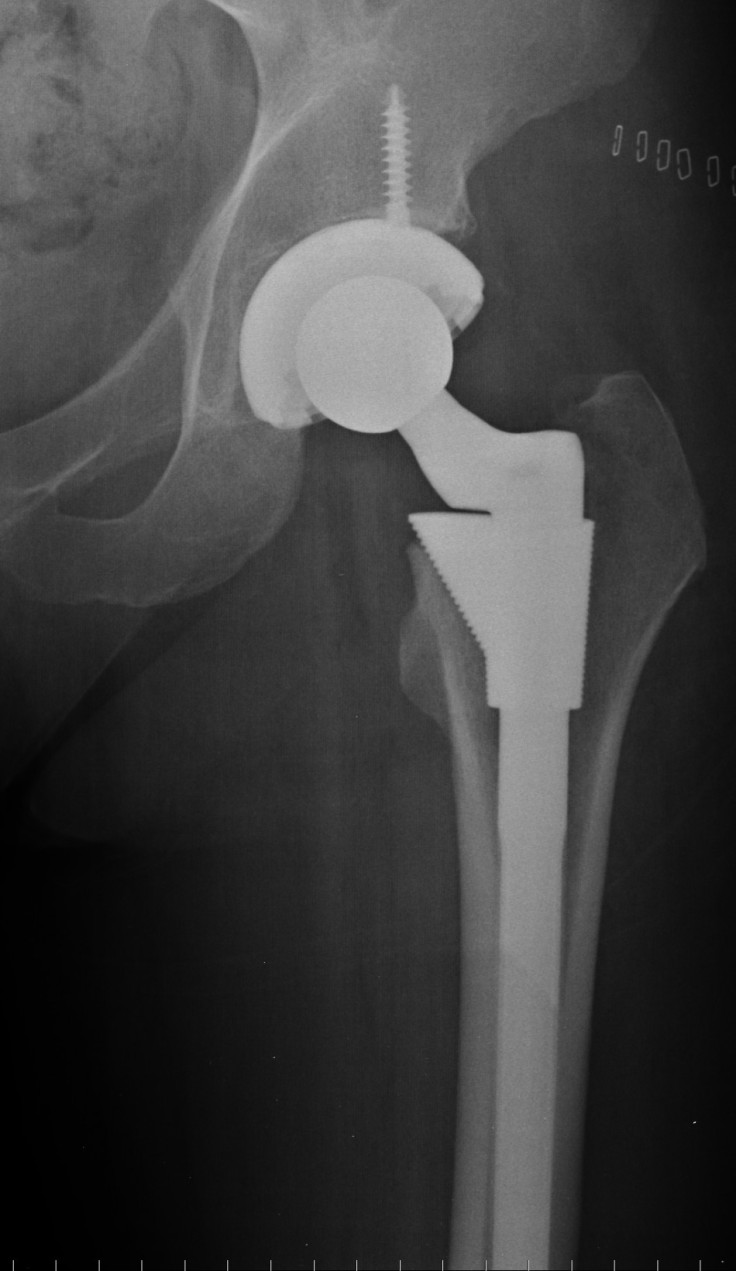Metal-On-Metal Hip Replacement Patients At No Cancer Risk

Metal-on-metal hip replacement patients are at no risk of developing cancer in the first seven years after surgery. Earlier, researchers had discovered tiny metal ions that break off from the implants and seep into the blood of the patients, triggering cancer cells and leading to muscle and bone damage.
Researchers from the Universities of Bristol and the University of Exeter conducted a study on 40,000 patients and discovered that patients will not develop cancer in the first seven years after surgery.
"This research shows that there is no increased risk of cancer with metal-on-metal hip replacements in the first seven years after surgery. Although this is very reassuring, we do not know what the long-term risks are and thus further studies will be necessary in the future," said Ashley Blom, Professor of Orthopaedic Surgery in the School of Clinical Sciences at the University of Bristol, who led the team.
During the study, they analysed cancer rates in patients with metal-on-metal hip replacements. They compared a group of patients who had other hip-bearing surfaces implanted and the general population and found that metal-on-hip patients are on a safer side for seven years. However, they do not know whether it safe for long-time use.
© Copyright IBTimes 2025. All rights reserved.





















